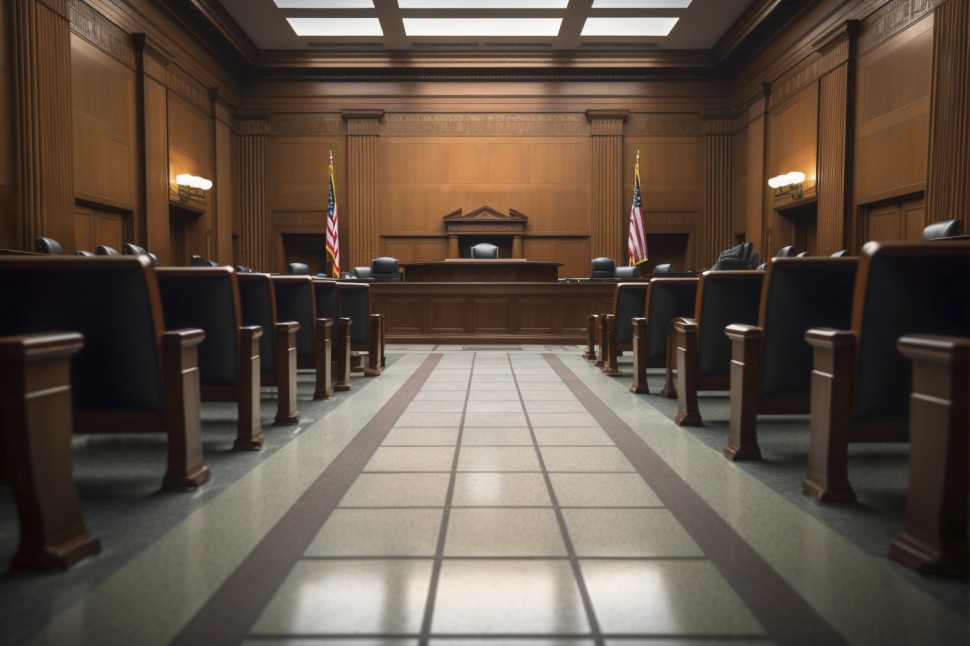Setback for Manhattan DA in Trump Hush Money Case
Former President Donald Trump faced a twist in the hush money case. Key witnesses testified against the prosecution's claims. Manhattan DA Alvin Bragg accuses Trump of 34 counts of record falsification. These are tied to payments to Stormy Daniels during the 2016 campaign. Trump denies the charges, calling it a political attack.

Witness Testimonies Undermine Prosecution's Narrative
Critical evidence questions the case's foundation. The focus is on the $130,000 paid to Daniels. This was to silence her about an alleged 2006 affair with Trump. Trump's ex-lawyer, Michael Cohen, made the initial payment. Trump is said to have paid him back, falsely labeling it as legal fees. Despite Cohen's legal issues, Bragg relies on additional witnesses to support Cohen's testimony.
Yet, as per legal analyst and professor Jonathan Turley, these witnesses' accounts "contradicted the basis for the prosecution." Notably, David Pecker, the former owner of the National Enquirer, one of the figures who took the stand, has worked to suppress negative news on various celebrities, indicating a broader context to this practice. When questioned, Pecker confirmed an enduring pattern of protecting Trump from unfavorable stories long before his political ascent.
Details from Cross-Examination Stir Doubt
During the critical cross-examination of Pecker, additional details emerged. One particularly significant revelation was that Pecker had been giving Trump warnings about negative stories since 1998. This ongoing effort to shield Trump's image predates his political ambitions by many years. This aspect of Pecker's relationship with Trump amplifies doubt about the specificity and timing of these payments being directly tied to campaign motives.
Another witness, Keith Davidson, Daniels' former lawyer, used particular phrasing that could redefine the nature of the transactions. He characterized the payments not as hush money or a payoff but as "consideration in a civil Settlement Agreement." Such a description could imply a standard legal practice distinct from seedy, clandestine efforts to muzzle damaging stories.
ALSO READ: Former President Trump Held in Contempt, Faces $9K Fine Over Gag Order Breach in Hush Money Trial
Turley Critiques the Basis of the Charges
Turley, a seasoned legal commentator with experience testifying in presidential impeachments, has questioned the solidity of the charges against Trump. He suggests that the legal definition of the payments does not necessarily align with the concealment of a crime, as the prosecution posits.
Furthermore, former Trump aide Hope Hicks spoke to Trump's mindset, portraying him as a figure striving to maintain his family's pride and shield them from fallout connected to his campaign. Hicks' testimonial impression diverged from Pecker's, who suggested Trump's concerns were more about campaign impact than family embarrassment.
The Legal Conundrum of NDAs and Negative Press
Celebrities often deploy Non-Disclosure Agreements (NDAs) to deal with private affairs quietly. His defense has framed Trump's use of NDAs as a common tactic to handle adverse press, detached from criminal intent. Trump's history with Pecker supports this interpretation, revealing a strategic partnership spanning decades.
While the prosecution has yet to present its complete case, the current evidence and testimonies from Bragg's witnesses introduce a contrarian narrative to the one the Manhattan DA has projected. The evolving courtroom dynamics reveal the complexities of distinguishing between acts of standard legal protection and potential campaign finance violations.
As the trial unfolds, the Trump camp remains resolute in its defense, countering the implied illegality of the transactions with a broader picture of common practice among public figures. The witness testimonies thus far have injected uncertainty into proceedings, which could have significant implications for the outcome of this high-stakes legal battle.




